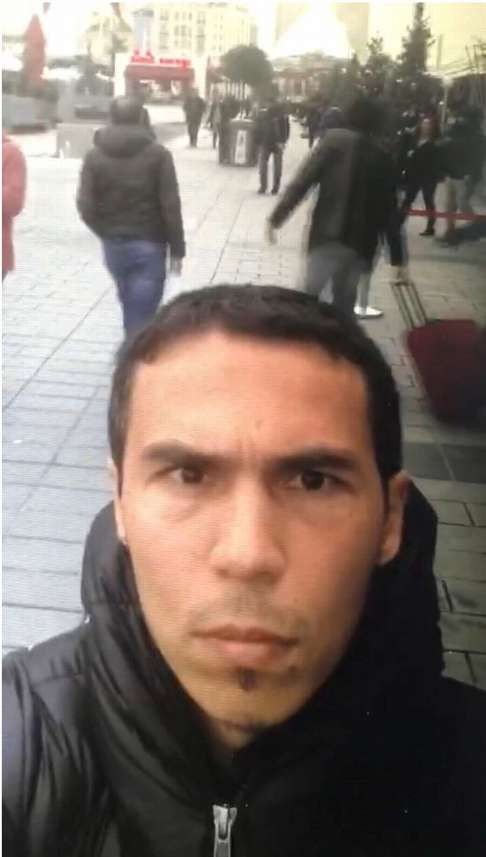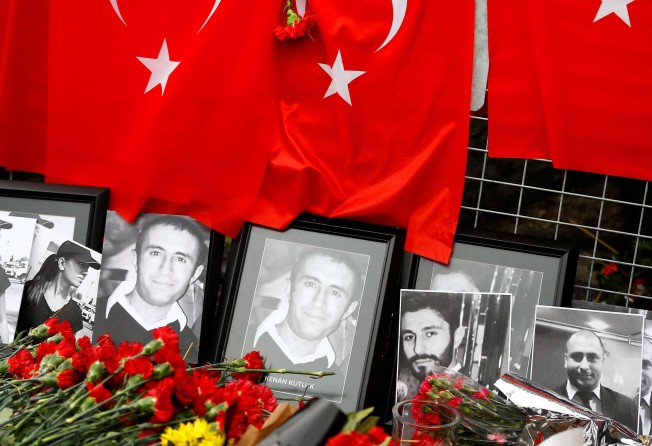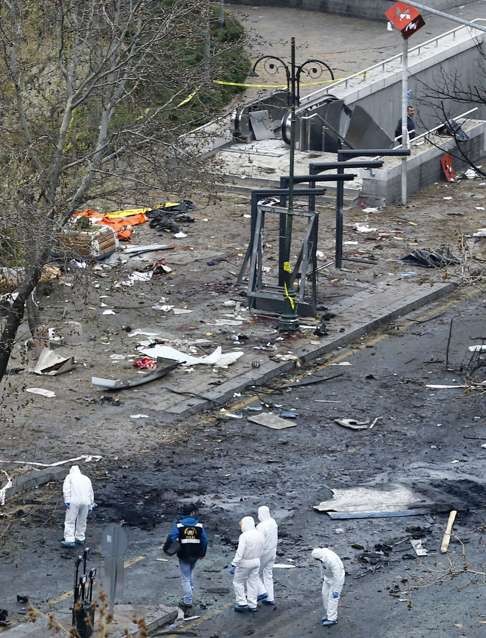
Is Turkey paying a bloody price for double standards on terror?
Zhou Zunyou says Islamic State and Uygur jihadist groups are by-products of the shifting rules of the US, Turkey and their allies against terrorism, which could even force Beijing to give up its foreign policy of non-interference

In the early hours of 2017, a lone gunman went on the rampage in Istanbul’s upscale Reina nightclub, killing 39 partygoers and wounding 69 others. While the attacker remains at large, Islamic State (IS) has claimed responsibility for the carnage – in revenge for Turkish military operations in Syria.
After days of media speculation, Turkish authorities identified the suspect as an ethnic Uygur who moved to the country with his family last November following training in Syria. Several other Uygurs were rounded up on suspicion of aiding and abetting the killer.
Uygurs are a Turkic-speaking Muslim minority largely concentrated in China’s far-western region of Xinjiang, and with a noticeable presence in Central Asia and Turkey. In the context of the global jihadist movement, Uygur extremists have been seeking to set up an independent state of their own, called “East Turkestan”, through violent acts in the name of revolting against repressive Chinese rule.

Turkey has encouraged the exodus of Uygurs from China ... despite China’s repeated warnings that some were on their way to join the jihad
In addition to the Syrian civil war, a China-backed Pakistani counterterrorism campaign has been another driving force for the relocation of TIP militants, from their previous headquarters in the border areas of Pakistan and Afghanistan to Syria. And following right behind were flocks of radicalised Uygurs who, lured by jihadist recruiters, had secretly travelled from Xinjiang to Turkey. Many of these “illegal migrants”, as China views them, ended up as foreign fighters in Syria.
Reports also suggest that IS has been competing with al-Qaeda in recruiting Uygurs. Given that Islamic State is claiming credit for the Istanbul attack, the perpetrator is very likely to have been a specially trained IS fighter.
The Istanbul bloodshed is just a continuation of the wave of terrorist assaults that have ravaged Turkey in the past year. These attacks have been partly carried out by terror groups such as IS and partly by offshoots of Turkey’s banned Kurdistan Workers’ Party.

With regard to counterterrorism, there is no denying that Turkey adopts double standards. While it fights an anti-terror war against Kurdish separatist militants, it demonstrates solidarity with and offers refuge to Uygur militant separatists. But Turkey is not alone on double standards. The US government is infamous for calling those it likes freedom fighters, and those it dislikes terrorists. This judgment is based on the fact that the US, in trying to overthrow the secular Assad government, has supplied jihadist rebel groups with training, intelligence and weaponry.
Without the tolerance or even assistance of Turkey, the US and their allies, Islamic State would not have been able to grow so powerful
Without the tolerance or even assistance of Turkey, the US and their allies, Islamic State would not have been able to grow so powerful as to inflict so many atrocities and so much destruction.
Recep Tayyip Erdogan, the president of Turkey, has long shown support for the East Turkestan movement. Given Turkey’s collusion with Uygur jihadists who have threatened Chinese interests abroad and will probably bring jihadist violence back to China, Beijing may be forced to give up its foreign policy of non-interference and back Kurds as a countermeasure.
The Istanbul shooting adds to the evidence indicating that both IS and TIP are by-products of double standards in anti-terrorism policies of related countries, especially the US and Turkey.
Dr Zhou Zunyou is head of the China section at Germany’s Max Planck Institute for Foreign and International Criminal Law, and the author of Balancing Security and Liberty: Counter-Terrorism Legislation in Germany and China